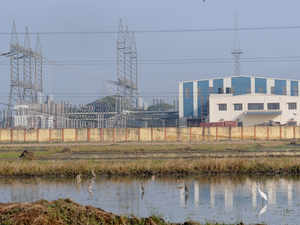
The companies have told the ministry of power that reducing government shareholding below 51% may not go down well with existing investors, particularly foreign lenders, according to people in the know.

Currently, the government holds 54% in NTPC, 54.96% in PGCIL and 56% in PFC. In case of NTPC and Power Grid Corp, government shareholding will fall to 51% as the Centre plans one round of divestment within this financial year through the exchange-traded funds (ETF) route, the people cited above said.
Government stake in PFC is expected to fall to 42% after the merger of its subsidiary, REC Ltd, with Power Finance Corporation.
On November 21, the Cabinet Committee on Economic Affairs had given its in-principle clearance to reduction of the government’s stake in select public sector units to 51%, while retaining management control on case-tocase basis, taking into account the government shareholding, and the shareholding of government-controlled institution.
“Post such reduction, government’s control will remain intact and, while retaining the management control, on a case-to-case basis decision will be taken,” finance minister Nirmala Sitharaman had said.
CIRCUIT BREAKER
The power companies, however, have indicated that their cost of borrowings is likely to go up if the government reduces stake below 51%. “During fund-raising programmes, the companies have maintained that the Centre holds 51% in each of these firms. Disinvestment below 51% may require the companies to pre-pay some of the lenders,” one person familiar with the development said.
He said in case of Power Finance Corp — that is mopping up about 25% of its borrowings thorough international issuance — ratings firms such as Moody’s Investor Services raise ratings by about three notches after considering the company has 51% government ownership.
The government proposes to raise Rs 1.05 lakh crore from disinvestment in this fiscal. It had exceeded asset-sale targets of Rs 1 lakh crore in FY18 and Rs 80,000 crore in FY19. In the current fiscal, by the end of September, the government had only raised Rs 12,359 crore through disinvestment.
The government has announced divestment of five public sector units (PSUs), including majority stakes in bluechip oil company Bharat Petroleum Corp (BPCL) and Shipping Corporation of India, besides 31% in Container Corporation of India (Concor), along with management control.
The sale of stakes in these three companies is expected to fetch Rs 78,400 crore to the government. It also targets Rs 15,000 crore through the sale of its entire share in the Tehri Hydro Development Corp of India and North Eastern Electric Power Corporation (Neepco) to NTPC.
Download The Economic Times News App to get Daily Market Updates & Live Business News.
Download The Economic Times News App to get Daily Market Updates & Live Business News.









 Get Unlimited Access to The Economic Times
Get Unlimited Access to The Economic Times
